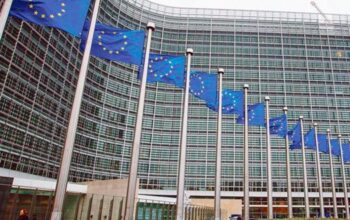Republika Srpska has delivered its 21st Report to the UN Security Council. Below is the report’s introduction and executive summary.
Republika Srpska’s 21st Report to the UN Security Council
Introduction and Executive Summary
The period since Republika Srpska’s 20th Report to the UN Security Council in November 2018 has been marked by divergent reactions to the results of October’s free and fair elections.
The largest Bosniak party, the SDA, has reacted poorly to its disappointment in the election results, becoming a greater obstacle to democracy, peace, stability, and the Dayton Accords, particularly the BiH Constitution. Since the elections, the SDA has done little but obstruct implementation of the election results, undermine the functioning of public institutions, and politically attack Republika Srpska. A political blockade by the SDA has prevented BiH from forming the new Council of Ministers, even though more than six months have passed since the elections.
At the Federation level, the SDA challenged the BiH Central Election Commission’s implementation of the election results, delaying the formation of the Federation Parliament until 20 February. The Federation has failed to form a government, as have some of its ten cantons. Politics in the Federation are in crisis, in part as a result of the election of Željko Komšić as the “Croat” member of the BiH Presidency. Komšić is a nominally Croat politician who advocates the SDA and Bosniak political agenda and has almost no support among Croats. Bosniak politicians disenfranchised Croat voters by encouraging Bosniaks to vote for Komšić instead of a candidate for the Bosniak seat in the Presidency. This gave Bosniaks two seats on the Presidency and the Croats zero.
In January, the SDA announced a destabilizing and legally groundless initiative to challenge Republika Srpska’s name. This threat is as serious affront to Republika Srpska—which is one of the two Entities that comprise BiH and a signatory to the Dayton Accords—as well as to the citizens of Republika Srpska, particularly the Serb Constituent People. The initiative is meant to delegitimize the existence of Republika Srpska.
Reactions to the election in Republika Srpska have been very different. After the clear-cut victory of the coalition led by the SNSD party, Republika Srpska quickly formed a new government, which set to work implementing its mandate. Duly elected officials from Republika Srpska are pressing forward in support of a BiH based on the Dayton Constitution.
The new chairman of the BiH Presidency, Milorad Dodik has been pursuing the cause of BiH’s EU integration and seeking common ground with his colleagues in the Presidency. In February, Dodik said, “There are different ways in which relations between the three constituent peoples in Bosnia could develop. They could spark progress or stagnation, or we could try to reach a basic consensus and a functional agreement which would suit everyone.” Dodik further said. “We should end the unitarization and secession talks. It’s only natural that we accept reality and try to make something out of it.” Similarly, in April, Dodik said, “I am for agreement in BiH. No one should negate anyone, neither we Serbs Bosnia nor Bosniaks Republika Srpska nor Croats Bosnia and Republika Srpska nor we all the Croats.” Unfortunately, Dodik’s efforts at developing consensus have been hampered by the unlawful and divisive actions of the SDA.
Below is a brief summary of each section of this report.
I. The SDA is unlawfully blocking implementation of BiH’s 2018 election results.
More than six months after BiH’s 2018 elections, the SDA is blocking implementation of the election results by setting unrealistic conditions for the formation of a new Council of Ministers. The main purpose of the blockade is to keep members of the Serb coalition that won the elections out of BiH-level ministries and offices, negating the choices of the RS electorate. The SDA’s blockade, which casts aside the choices of BiH voters, must end, especially because it is undermining BiH’s efforts at EU integration and economic reform.
II. RS political parties are united in supporting continued cooperation with NATO but not NATO membership.
BiH lacks the consensus among its Constituent Peoples necessary for a decision as momentous as joining a military alliance. Republika Srpska supports BiH cooperation with NATO, but it has also made clear its commitment to BiH’s military neutrality. Republika Srpska is well justified in taking positions on such issues, especially because the BiH Constitution gives the RS National Assembly a key role in treaty ratification. EU officials have rejected the notion that progress toward NATO membership is linked to EU integration. Moreover, NATO membership would require a major increase in military spending that BiH cannot afford. In addition, the proposed Annual National Program for NATO calls for a centralization of competencies from the Entities to the BiH level in violation of the BiH Constitution.
III. Republika Srpska is committed to BiH’s EU integration; the SDA is inhibiting it.
Republika Srpska remains committed to supporting BiH’s integration to the EU in every way possible. EU membership is a goal toward which BiH’s disparate parties should be able to work cooperatively. Unfortunately, the SDA’s blockade of the Council of Ministers’ formation has frozen BiH’s progress toward the EU.
IV. The SDA’s provocative initiative to challenge Republika Srpska’s name is a direct challenge to Republika Srpska’s legitimacy and must be condemned.
The SDA recently announced a legally baseless and politically destabilizing effort to challenge Republika Srpska’s name before the BiH Constitutional Court. The initiative is a challenge to the BiH Constitution itself, which repeatedly recognizes Republika Srpska by name. Moreover, nothing about Republika Srpska’s name violates human rights instruments. The SDA’s initiative is an affront to the citizens of Republika Srpska and is politically destabilizing because it challenges Republika Srpska’s legitimacy to exist, striking at the heart of the Dayton Accords.
V. The BiH Constitutional Court’s new decision on RS Day is a political act inconsistent with the practice of EU states and European law.
A recent decision of the BiH Constitutional Court claims that Republika Srpska’s purely secular and voluntary holiday marking the date of its creation violates the BiH Constitution, in conjunction with anti-discrimination provisions of human rights conventions. But the claim that it is discriminatory to mark days of special significance to certain religious or ethnic groups is unsupported in European law.
VI. BiH institutions are not meeting their responsibility to keep BiH secure, which seriously increases the risk of terrorism.
The migrant crisis in BiH has been deepening as BiH border police have failed to slow the surge of migration into the country. The migrant crisis is a security crisis, especially because terrorists are entering BiH among the migrants. This is especially worrisome because BiH institutions are not taking treat the jihadist threat with the seriousness it requires. This raises the risk of terrorist acts within BiH and in other European countries.
VII. The independent commissions on Sarajevo and Srebrenica are part of the search for historical truth.
Republika Srpska has sponsored two commissions composed of independent experts from around the world to examine suffering in Sarajevo and Srebrenica during BiH’s civil war. More than 15 years ago, the BiH Human Rights Chamber ordered the Federation, BiH’s other Entity, to establish a commission on the suffering of Sarajevo’s Serbs from 1991 to 1995. The Federation failed to establish the commission as ordered, so Republika Srpska is sponsoring the commission today. Republika Srpska is also establishing a commission to examine the suffering of all peoples in and around Srebrenica between 1992 and 1995. The commission is not an attempt to deny that large-scale atrocities were committed against Bosniaks in Srebrenica. Instead, it is a search for truth about crimes in Srebrenica—regardless of the ethnicity of the victims—during the entire war.
VIII. Republika Srpska is committed to the Dayton Accords and BiH’s full sovereignty.
Republika Srpska remains committed to the Dayton Accords and insists that the BiH Constitution, Annex 4 of the Accords, be faithfully implemented. Republika Srpska is also committed to BiH’s full sovereignty, which means the Office of the High Representative and the presence of foreign judges on the BiH Constitutional Court must be eliminated.
Read the whole report here.


